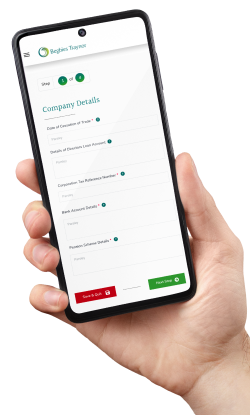The limited company structure enables directors to withdraw money from their business in the form of salary, dividends, or expense repayments. Any other withdrawal of funds is regarded as a loan from the company.
Your company is a separate entity in law, which offers valuable protection from personal liability as a director. If you owe money to your own company, however, there are rules and regulations surrounding repayment.
A director’s loan account records the funds you invested in your company, and withdrawals that don’t constitute salary, dividends, or repayment of expenses. There must be a separate director’s loan account for each company director, and these accounts form part of the business’ books.
A DLA is regarded as overdrawn if you owe the company money - the overdrawn balance is essentially an interest-free loan. This situation introduces the potential for additional tax and reporting requirements, as depending on the circumstances, the withdrawal may be regarded as a benefit-in-kind by HMRC.
Concerned about the National Insurance increase?
For the 2024-25 tax year, the rate of employer National Insurance increases from 13.8% to 15% adding yet more pressure onto already squeezed cash flows. If you are worried about the impact this could have on your company’s finances, talk to the experts at UK Liquidators. As licensed insolvency practitioners we can explain your options and help you plot a way forward. Call today on 0800 063 9262.
You might need to withdraw money from the company to cover a personal expense that you didn’t expect. It may not seem a problem at the time if the business’ financial situation, and your own, is stable.
Serious issues can arise if your company experiences financial difficulty, however. Should the company be liquidated, the office-holder will expect immediate repayment of the money in full as the loan is an asset that needs to be recovered.
Liquidation Portal
For Company Directors

Two factors can affect the rules surrounding company loans to directors. These are the amount borrowed – if it exceeds £10,000 – and whether the rate of interest paid is lower than the official rate.
As long as you repay in full within nine months and one day of the end of your company’s corporation tax accounting period, you won’t have to pay any personal tax on the borrowing.
If the money isn’t repaid in this timescale, the following might apply:
Start your online liquidation today
If you have decided liquidation is the right option for your limited company, you can take the first step and begin the process online using our online portal. Starting the process is quick, simple, and can be done at a time that suits you. Your information will be submitted to your local UK Liquidators insolvency practitioner who will be with you every step of the way. Click here to start your company’s liquidation online.
Any money owed to the company appears on the balance sheet as an asset, so if it enters liquidation you become personally liable to repay the full balance outstanding. In the event that you can’t afford to repay, the liquidator can take legal action to recoup the debt on behalf of the company.
In doing so your home and other assets may be put at risk as the liquidator can force you into bankruptcy. If you’re found to have contributed to the decline of the business by taking the loan, you may also be held personally liable for some of the business’ debts.
Owing money to your own company may seem straightforward when the intention is to repay within the given timescale. Circumstances can change, however, and you may find yourself unable to repay.
If you’d like more information on directors’ loan accounts, and taking money from your company, please contact our expert team at UK Liquidators. We provide reliable independent advice, and offer free same-day consultations.
By completing the test, you will receive:
If you are considering liquidation for your company, taking expert advice at an early stage is crucial. At UK Liquidators, our team of licensed insolvency practitioners are committed to providing limited company directors with the help and advice they need to make an informed decision.




Looking for immediate support?
Complete the below to get in touch